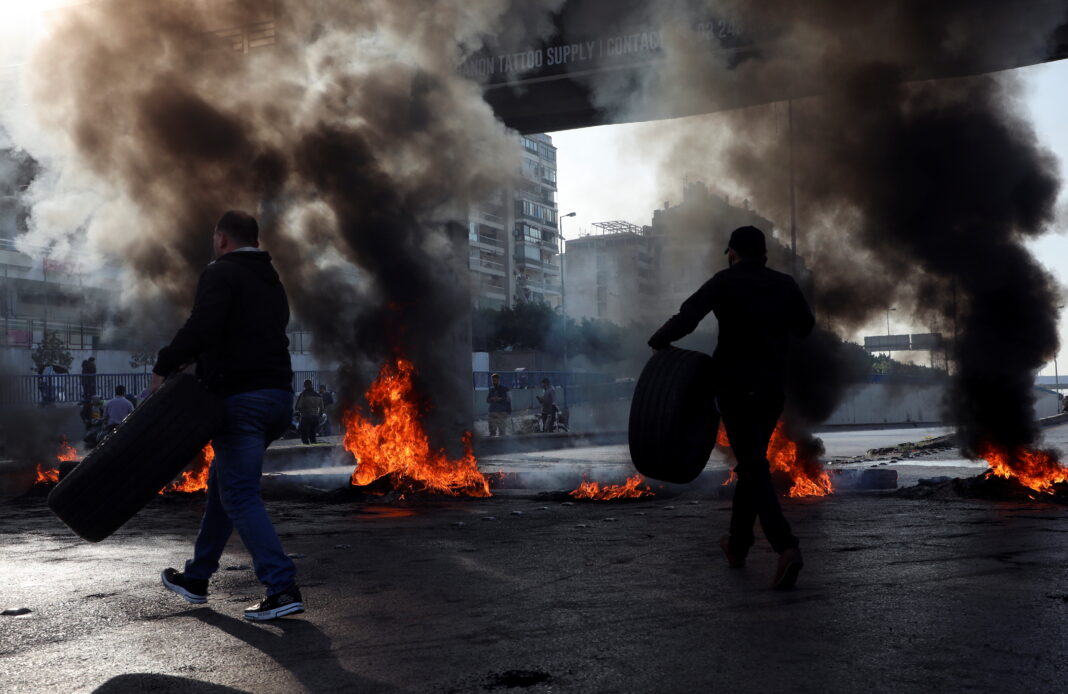Protesters across Beirut, Tripoli, Saida, and other cities closed highways and intersections Monday morning with their vehicles, and lit tyres and garbage dumpsters on fire.
They called on the government to control the spiraling Lebanese pound, which for the past week has hovered at about 25,000 to the US dollar.
The pound has lost about 90 percent of its value in just over two years.
Mohammad, a taxi driver with his rental car parked at an intersection on Beirut’s bustling Hamra Street, said it has become less costly to be unemployed than to work.
“I can’t afford to pay my weekly rental fees for my car, not including gasoline prices and my monthly expenses for the family,” he told Al Jazeera, adding, “And there are barely any customers.”
The taxi driver said he has lost hope in political change, be it from the country’s ruling parties, or the slew of opposition political groups.
“I don’t trust anyone anymore. They’re all liars and thieves. And I don’t want charity. I want to just have a decent living,” said Mohammad, who gave only his first name.
The Lebanese Army was able to clear some closed intersections and thoroughfares. However, in Sports City just south of Beirut, protesters doused the highway with petrol so cars could not drive through, even if the army cleared the roadblock.
Anonymous calls to protest from across the country circulated on WhatsApp and other messaging apps over the weekend. Some political opposition groups said the demonstrations were organised by some of Lebanon’s sectarian parties.
Over the past month, Lebanese authorities have hiked petrol prices weekly as they continue to lift subsidies. They also partially lifted medicine subsidies, which increased prices on several medications for chronic illnesses and mental health.
Adham Hassanieh, from the opposition group Li Haqqi, told Al Jazeera he was not unsure who organised the protests. He noted he believes the Lebanese economy will continue to spiral without wholesale changes.
“It’s one failed government after the other,” Hassanieh said, adding, “The solution isn’t just technical … it’s about political will and who will bear the country’s financial losses.”
Prime Minister Najib Mikati’s government remains gridlocked, and has not convened in almost two months, unable to resolve a diplomatic dispute with Saudi Arabia and several Gulf countries, and settle differences over Beirut blast investigator Judge Tarek Bitar.
The government for months promised to introduce a one-year ration card programme to cushion the financial blow for about 500,000 families. However, they have yet to secure funding for the plan, which costs more than $500m.
Lebanon is also struggling to implement financial and accountability reforms, including a forensic audit of the Central Bank and state institutions. The international community has urged the country to restructure its wasteful and ineffective economy and reach an agreement with the International Monetary Fund in order to deliver financial assistance.
In just two years, more than three-quarters of Lebanon’s population has slipped into poverty, according to the United Nations.
